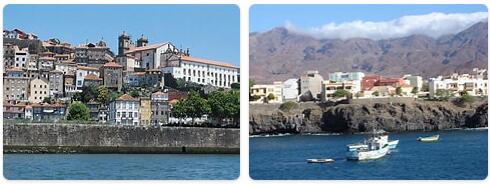Myanmar 2018
Myanmar’s population in 2018 was estimated to be 54.6 million people, with a median age of 28.2 years old. The economy of Myanmar is largely driven by agriculture, with the country’s main exports being rice, pulses, timber and fish. Tourism is also an important part of the economy, with the country welcoming over 3 million tourists in 2018. Myanmar has strong diplomatic relations with many countries around the world, particularly within Asia and Oceania. The country is a member of the Association of Southeast Asian Nations (ASEAN) and United Nations amongst others. According to extrareference, Myanmar is a military-controlled state led by President Win Myint since 2018 who is appointed by the National Defence and Security Council (NDSC). The NDSC also appoints a Prime Minister to lead government affairs.
Yearbook 2018
Burma. According to Countryaah.com, Naypyidaw is the capital city of Burma, a country located in Southeastern Asia. Burma’s relationship with the outside world was characterized by the unresolved Rohingya crisis in the state of Rakhine. Strong criticism was directed at the continued persecution of the Muslim minority group. More than 720,000 Rohingyans are estimated to have moved to Bangladesh since August 2017 when the wave of violence broke out. During the year, Bangladesh and Burma held several rounds of talks on how the refugees would return. One shock was that the refugees feared for their safety and that homes were missing in Rakhine after many villages were destroyed during the military’s offensive against the Arsa (Arakhine Rohingya Salvation Army) rebel group.
- According to Abbreviationfinder: MMR is an three letter acronym for Myanmar.
The human rights group Amnesty International reported in May that Arsa killed dozens of Hindus in connection with an attack in Rakhine in August 2017, Arsa denied.
In November, Bangladesh announced that it had decided to stop the movement of a first larger group as the refugees feared for their safety. The UN Refugee Agency UNHCR and the UN Children’s Fund UNICEF welcomed the message.
UN Special Investigator Marzuki Darusman noted in September that the Rohingya were still subject to murder and outright genocide and forced displacement to camps in Rakhine. At the same time, the UN had difficulty accessing the area. The report to the UN Human Rights Council stated that the Rohingya were subject to genocide and that a number of Burmese high commanders, including ÖB Min Aung Hlaing, should be brought to justice. The Council decided that it was necessary to gather evidence for any future prosecutions. The report was rejected by Burma, who claims that the offensive was necessary to quell an uprising.
In September, the International Criminal Court (ICC) stated that it has launched a preliminary investigation into mass exiles of Rohingyans. The ICC considers itself empowered to investigate this despite the fact that Burma did not sign the Rome Statute.
Burma civilian leader Aung San Suu Kyi refrained from attending the UN General Assembly in New York in September, just as 2017. At a World Economic Forum meeting in Vietnam, she acknowledged that the Rakhine issue could have been better handled but did not criticize the military.
She also attended the ASEAN Asian Summit in Singapore in November. There, Malaysian and Indonesian leaders criticized Burma’s handling of the Rohingya crisis. The criticism was unusual as the ASEAN countries usually avoid criticizing each other.
In October, the EU announced that Burma is at risk of losing its duty-free status under the “Everything but Arms” program as a result of the negative trend. Critics said it could hit poor people, such as women in the tech industry, and advocated more targeted sanctions on senior commanders. The EU, Australia, Canada and the US also imposed sanctions on army, border guard and police officers who were considered to be involved in the abuse.
Despite worries in Rakhine and more economic uncertainty in the outside world, including China, the World Bank estimated that growth would end at just over 6.8% for the fiscal year ending March 2019.
The criticism of Suu Kyi for not sharply criticizing the persecution of Rohingya led to her losing several honors for her former democracy struggle, for example, Canada revoked her honorary citizenship.
Freedom of the press was under continued pressure and Burma dropped a few more investments in an annual compilation from Reporters Without Borders. One notable case concerned two journalists from the Reuters news agency who were sentenced in September to seven years in prison for reporting a massacre of ten men and boys in the village of Inn Din. The journalists were convicted of violating the Secrecy Act, despite the fact that the military admitted the deaths and seven soldiers were sentenced.
Win Myint from the ruling National Democratic Alliance (NLD) succeeded Htin Kyaw in March as president. Htin Kyaw, who suffered from health problems, became the country’s first civilian president in 50 years.
Periodic intensive fighting was fought between government soldiers and ethnic armed groups in the states of Kachin and Shan. Thousands of civilians flocked. But in July a new big meeting was held between the government, the military and representatives of the country’s largest ethnic groups. For the first time, all armed groups, including those who have not entered into a ceasefire, participated. The Panglong Conference is part of a process to fulfill the government’s promise to end long-standing civil disputes.



